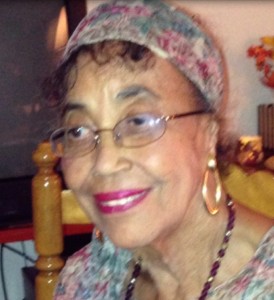
By Saundra Y. Boyd
Our dear friend Ife Mawusi (Lula M. Reed) has passed.
Who was she? Ife described herself as a “Creole child” growing up on a farm in Louisiana in a community of independent-minded people who, nevertheless, supported one another whenever the need arose.
She was named Lula, and, like many of us, she did not like her name because she believed it did not fit her image of herself. She once told the story of how she acquired the name “Ife Mawusi”: While studying African history and culture at the Shrine of the Black Madonna, Bishop Olu, the instructor, gave her the African name Ife Mawusi — meaning “Love in the Hands of God.” For her, that is who she was, and that is who she became for me.Ife and I first came together in our efforts to understand our world and its crazy-making system of racism. She and I were on opposite sides of the double-bladed sword of racism. But she never doubted where she stood with respect to that danger. Yet it took me a lifetime to understand my complicity in the system that wields the knife. It was Ife, however, who helped me understand both sides better.
But that was not all we shared. We both grew up in a segregated society. Throughout our lives we struggled with trying to understand the system that created such a world and insisted upon maintaining it. Our first encounter was at Dialogue:Racism at the Center for Healing Racism, where we were both trying to understand racism and its negative effects. There, we bonded in our efforts to heal from the damage racism had heaped upon of us. Clearly, the damage to her had occurred early, and she was aware of that damage from her earliest memories. She told me the story of her people and what they had endured, including the horror of seeing a man hanged who was not anywhere near the crime for which he was brutally hanged. As a consequence of that early trauma, which deeply scarred her for life, she had to raise her children to be overly cautious, but such caution was not enough to save her youngest son from a violent death.
Through her openness and honesty about her suffering under a racist system, Ife helped me better understand that system. But also through our discussions in Dialogue:Racism, she helped me understand that while I was “privileged” to be a white woman, I was also damaged by the racism inflicted upon her and other African Americans. I did not fully realize until Ife and I met in Dialogue, how the system of racism had deprived me of the broader friendships and connections I might have shared had segregation not been the law of the land when I came of age.
More than once, Ife asked why I was her friend. I am not sure that I ever fully answered her question, but a partial answer lay in her gesture of friendship. When she learned I had lost my mother early in life, she offered to be my “other” mother. I’ve been grateful for that “adoption” because, through it, she enriched my life by making me part of her remarkable family.
Over the years, Ife and I shared in our support of the Center for Healing Racism through her Annual Tea fund raiser, which was continued by her family when she was no longer able to host the event. All our lives are richer for having known and worked with Ife Mawusi and her family. For me, it has been twenty-four years. I am eternally grateful to the Center for Healing Racism for bringing Ife and me together with the countless other seekers for social justice. Through them I am forever blessed. More blessings are due to Lula Reed (aka “Ife Mawusi”) and her progeny as we continue in that struggle. Our hearts go out to them and to one another as we cope with the loss of one of the Center’s greatest supporters.




69 Comments
Sorry, the comment form is closed at this time.